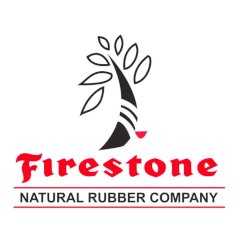Firestone Liberia has vehemently refuted accusations leveled against it by Mr. Dominic Nimely, Chairman of the Patriotic Entrepreneurs of Liberia (PATEL), regarding the company’s rubber processing practices. Mr. Nimely, during a press conference held on August 4, 2025, while commending President Joseph Boakai’s Executive Order # 151 prohibiting the export of raw rubber, claimed that Firestone Liberia exports its raw rubber to other African countries for processing, thereby depriving Liberians of job opportunities and hindering the country’s economic growth. He asserted that despite Firestone’s long-standing presence in Liberia, the company has failed to add value to the locally grown rubber.
Firestone Liberia, in a press statement released on August 7, 2025, categorically denied these allegations, labeling them as “false and misleading.” The company emphatically stated its unwavering commitment to local value addition, emphasizing that all natural rubber produced in Liberia is processed within the country into Technically Specified Rubber (TSR). This processing, Firestone argues, aligns perfectly with President Boakai’s Executive Order # 151, which specifically exempts the export of processed rubber products like TSR while restricting the export of unprocessed raw rubber. The company maintains that its operations adhere to the spirit and letter of the executive order, contributing to the growth of the Liberian economy and the creation of local jobs.
Furthermore, Firestone Liberia underscored its significant contribution to supporting Liberia’s broader rubber industry, particularly its smallholder farmers. The company highlighted its direct engagement with nearly 6,000 smallholder farmers between 2021 and 2024, purchasing over 60 million pounds of natural rubber. These purchases, according to Firestone, injected over US$30 million into the local economy, empowering smallholder farmers and fostering their business growth. This direct investment in local farmers, Firestone argues, demonstrates its commitment to the sustainable development of the rubber industry in Liberia and the economic well-being of its participants.
Firestone Liberia proudly emphasized its position as Liberia’s largest private employer, with a workforce exceeding 4,000 employees. The company reiterated its dedication to the sustainable development of the natural rubber sector in Liberia and its commitment to a strong partnership with the Liberian government and its people. This partnership, according to Firestone, is central to its long-term vision for the Liberian rubber industry, fostering economic growth and creating sustainable livelihoods for Liberians.
The core of the disagreement between Mr. Nimely and Firestone Liberia revolves around the interpretation and implementation of Executive Order # 151. While Mr. Nimely accuses Firestone of circumventing the order’s intent by exporting raw rubber for processing elsewhere, Firestone maintains that its conversion of all locally harvested rubber into TSR complies fully with the order’s provisions. This difference in interpretation highlights the need for clear communication and transparency regarding the specific processes involved in rubber production and the definition of “value addition” within the context of the Executive Order.
This public exchange between PATEL and Firestone Liberia underscores the ongoing debate about the role of multinational corporations in developing economies. While companies like Firestone often highlight their contributions to employment and local economies, concerns persist regarding the extent to which these contributions translate into genuine sustainable development and equitable distribution of benefits. The focus on value addition within Executive Order # 151 reflects the Liberian government’s efforts to maximize the economic benefits derived from its natural resources and ensure that local communities participate meaningfully in the value chain. This incident emphasizes the importance of continuous dialogue and collaboration between the government, private sector actors, and civil society organizations to ensure that economic development policies effectively serve the interests of all stakeholders.














